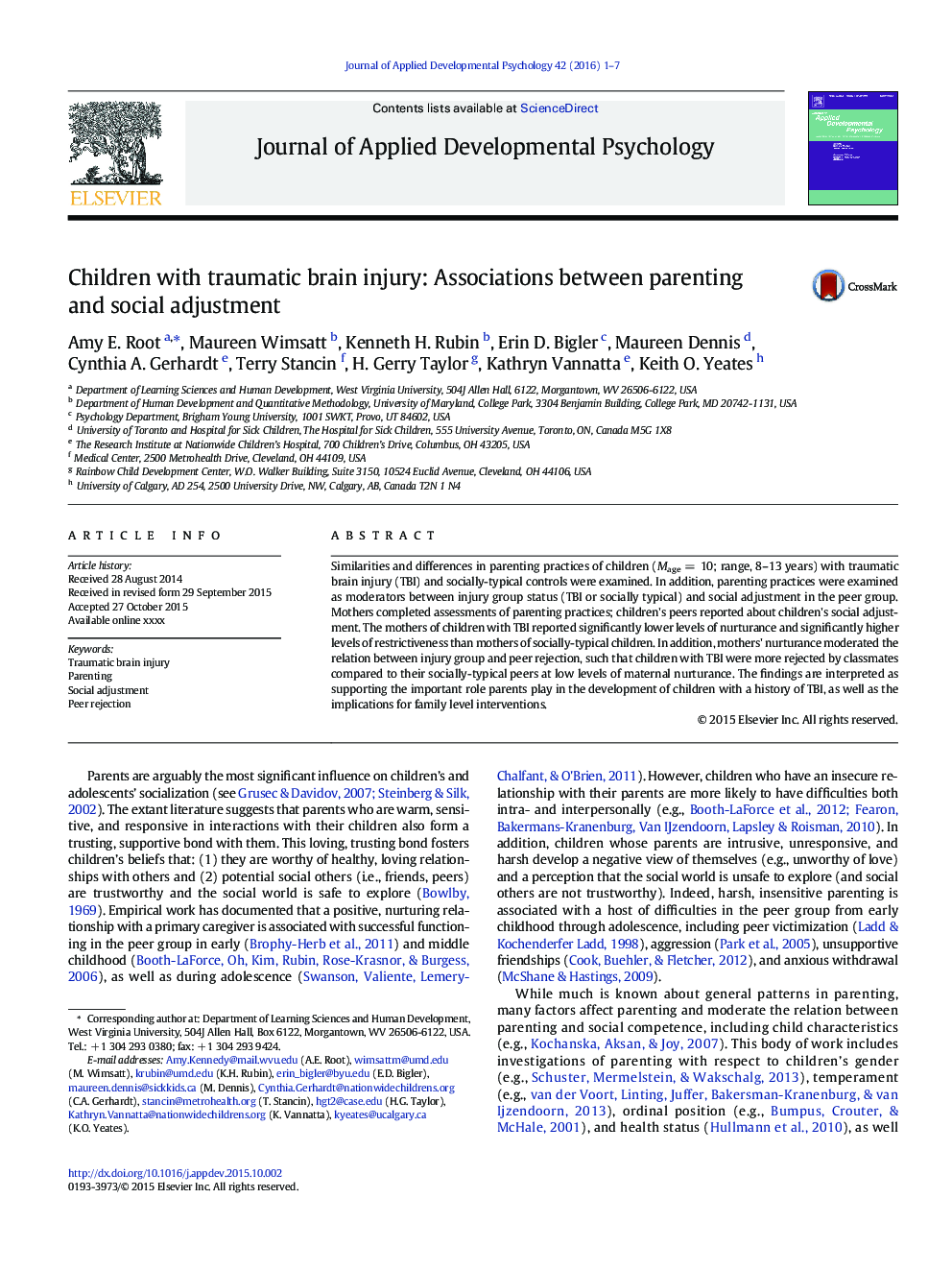| Article ID | Journal | Published Year | Pages | File Type |
|---|---|---|---|---|
| 6842841 | Journal of Applied Developmental Psychology | 2016 | 7 Pages |
Abstract
Similarities and differences in parenting practices of children (Mage = 10; range, 8-13 years) with traumatic brain injury (TBI) and socially-typical controls were examined. In addition, parenting practices were examined as moderators between injury group status (TBI or socially typical) and social adjustment in the peer group. Mothers completed assessments of parenting practices; children's peers reported about children's social adjustment. The mothers of children with TBI reported significantly lower levels of nurturance and significantly higher levels of restrictiveness than mothers of socially-typical children. In addition, mothers' nurturance moderated the relation between injury group and peer rejection, such that children with TBI were more rejected by classmates compared to their socially-typical peers at low levels of maternal nurturance. The findings are interpreted as supporting the important role parents play in the development of children with a history of TBI, as well as the implications for family level interventions.
Related Topics
Social Sciences and Humanities
Psychology
Applied Psychology
Authors
Amy E. Root, Maureen Wimsatt, Kenneth H. Rubin, Erin D. Bigler, Maureen Dennis, Cynthia A. Gerhardt, Terry Stancin, H. Gerry Taylor, Kathryn Vannatta, Keith O. Yeates,
